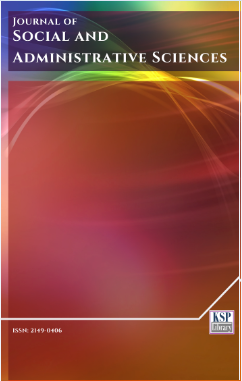Attitudes to Leadership and Voting: Finding the Efficient Frontier
Abstract
Abstract. Winning elections is essentially a matter of translating the attitudes of voters into votes. While there is a vast literature in political science, in particular in election studies, on the effectiveness of political campaigns in driving voter choice, we know very little, if anything, about the efficiency with which the inputs (voter attitudes) to the political process are converted into outputs (vote support). This article uses Data Envelopment Analysis (DEA) to examine the efficiency with which Australian political leaders and parties have, over the past three decades, converted voter attitudes (approval and disapproval) toward Prime Ministers and Opposition Leaders into votes (both for their own, and for their opponents’ parties). The results of the DEA analysis and associated modelling find marked differences in the political efficiency of recent Australian political leaders. Prime Ministers Hawke and Keating had superior political efficiency in converting attitudes to political leaders into votes, while Prime Ministers Howard and Rudd were relatively less efficient in doing so.
Keywords. Election campaigns, Politimetric modelling; Data Envelopment Analysis, Voter behaviour.
JEL. C54, D72, G14.
Keywords
References
Berry, B.J.L., & Chen, Y.S. (1999). Measurement of campaign efficiency using data envelopment analysis, Electoral Studies,18(3), 379-395. doi. 10.1016/S0261-3794(99)00007-4
Green, R.H., Doyle, J.R. & Cook, W. D. (1996). Preference voting and project ranking using DEA and cross-evaluation. European Journal of Operational Research, 90(3), 461-472. doi. 10.1016/0377-2217(95)00039-9
Llamaszares, B., & Pena, T. (2009). Preference aggregation and DEA: An analysis of the methods proposed to discriminate efficient candidates. Journal of European Operational Research, 197(2), 714-721. doi. 10.1016/j.ejor.2008.06.031
Obata, T., & Ishii, H. (2003). A method for discriminating efficient candidates with ranked voting data. Journal of European Operational Research, 151(1), 233-237. doi. 10.1016/S0377-2217(02)00597-0
Productivity Commission, (1997). Data Envelopment Analysis: A Technique for Measuring Efficiency in Government Service Delivery. Productivity Commission, Canberra
Wang, Y.-M., & Chen, K.-S. (2007). Discriminating DEA efficient candidates by considering their least relative total scores. Journal of Computational and Applied Mathematics, 206(1), 209-215. doi. 10.1016/j.cam.2006.06.012
DOI: http://dx.doi.org/10.1453/jsas.v3i3.921
Refbacks
- There are currently no refbacks.
....................................................................................................................................................................................................................................................................................................................................... Journal of Social and Administrative Sciences - J. Adm. Soc. Sci. - JSAS - www.kspjournals.org
ISSN: 2149-0406
Editor: editor-jsas@kspjournals.org Secretarial: secretarial@kspjournals.org Istanbul - Turkey.
Copyright © KSP Library




